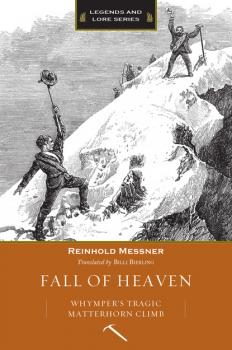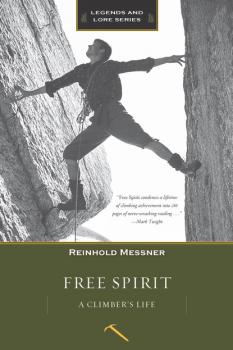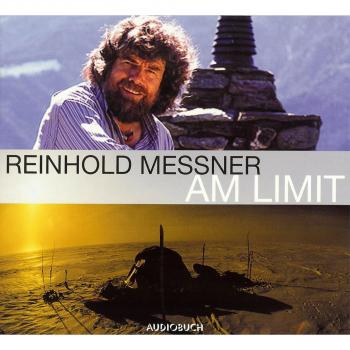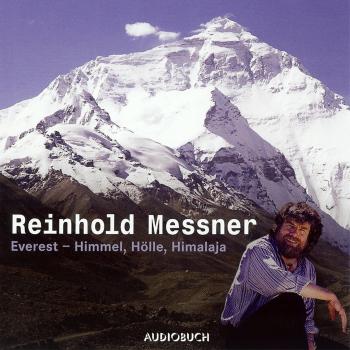Reinhold Messner
Список книг автора Reinhold MessnerBerge versetzen
Am Anfang steht Umkehr. Im Winter durch Grönland? Eine Nummer zu groß. Damit beginnt der Streifzug des Grenzgängers Reinhold Messner zu den Marksteinen seines Lebens. Ob von Erfolg gekrönt oder zum Scheitern bestimmt zeigen sie alle, wie das Undenkbare denkbar, das Nicht-Machbare machbar wird. Das Entscheidende ist die Motivation. Mit Berge versetzen (BLV Buchverlag) von Reinhold Messner ist ein Buch in Neuauflage erschienen, das absolut außergewöhnliche Erlebnisse mit tiefgreifenden Erkenntnissen kombiniert. Wer Messner als Leser folgt – vom Nanga Parbat durch die Antarktis bis in die Wüste Takla Makan -, wird nicht nur Zeuge atemberaubender Augenblicke, tödlicher Gefahren und schier unmenschlicher Leistungen an den entlegensten Orten der Welt. Er erfährt auch, dass Scheitern stets am Anfang von etwas Neuem steht. Dass Stärke aus Begeisterung erwächst. Dass nicht der Nutzen, sondern der persönliche Sinn eine immense Triebkraft ist. Zwölf Stationen in Tagebuchform sind verbunden mit zwölf Schritten, die allen nützen, die in ihrem Leben – beruflich oder privat – neue Impulse setzen wollen. Gefragt sind Visionen, Planung und Ausführung, Logistik und Strategie, Koordination und Leadership… Inbegriffen sind Momente des Ausgebranntseins, der Niederlage, des Neuanfangs. Nicht nur bei Motivationsvorträgen für Führungskräfte gibt Messner sein Wissen zum Beispiel um optimales Risikomanagement weiter. Auch hier schlägt er auf ebenso persönliche wie spannende Weise den Bogen von seinem besonderen Erfahrungsschatz zu unserem Alltag. Das macht Berge versetzen zu einem faszinierenden Ausflug an die Grenzen des menschlich Möglichen – und zu uns selbst. Und es zeigt auf anregende Weise, wie wir selbst "Berge versetzen" und über uns hinauswachsen können.
Fall of Heaven
A classic event in mountaineering history, dramatically retold by a classic mountaineer • Ascending the Matterhorn was the 19th century equivalent of standing on Mars • A great historical story of tension and drama • Author is uniquely qualified to delve into Whymper’s complicated personality As Fall of Heaven begins, we join professional mountain guide Jean-Antoine Carrel as he tries and fails, again and again, to summit the Matterhorn—one of the most famous and iconic peaks in the Alps. Is it the “Devil’s mountain,” as the locals call it? Should he heed the village priest who warned that its summit was not meant to be climbed? Carrel is undeterred, he just needs capable climbers to join him. Enter Edward Whymper, who in 1861 at the age of 21 decided—unbeknownst to Carrel—that he would be the first to climb the Matterhorn. So the storyline is set, except that where Carrel is captivating, Whymper is utterly unsympathetic as an adventurer. He is mean and disdainful of guides, describing them as little more than porters who eat and drink too much. Despite this attitude, Whymper’s quest leads him inexorably into partnership with Carrel. The story follows their many attempts to find a route to the top of the Matterhorn, but then fate pulls them apart just as Whymper finds the line. His successful summit on July 14, 1865, in which Carrel did not take part, shocked the Victorian world with both awe and revulsion as four members of Whymper’s party died in frightening falls. Famed climber and author Reinhold Messner acknowledges that Whymper was the first man to summit the Matterhorn, the last of the great Alpine peaks to be climbed and representing the beginning of an age of alpinism based on difficulty rather than conquest. But rather than leaving a hero’s legacy, Whymper is revealed as the Captain Ahab of alpinism, a team leader who accepted no responsibility for the deaths of his teammates. Fall of Heaven is an exciting tale and an examination of the different types of men who were caught up in the adventuring spirit of the Victorian age, and the ironic fates that can follow success or failure.
Reinhold Messner
•*Reveals the long view from an icon who, with age, has added wisdom to his list of accomplishments •*Messner climbing firsts: the world’s fourteen peaks taller than 8000 meters; Everest solo; Everest without supplemental oxygen •*Author of more than 60 books Reinhold Messner: My Life at the Limit, the newest book by the famed mountaineer, is a conversation between Messner and interviewer Thomas Hüetlin, an award-winning German journalist. It reveals a more thoughtful and conversational Messner than one finds in his previous books, with the “talk” between Messner and Hüetlin covering not only the highlights of Messner’s climbing career, but also his treks across Tibet, the Gobi, and Antarctica; his five-year-stint as a member of the European Parliament; his encounter with and study of the yeti; his thoughts on traditional male/female roles; and much more. Readers learn about Messner’s childhood, his thoughts about eating ice cream with girls (against), politics (mostly liberal), and his technique for killing chickens (sharp scissors). Messner is known as one of history’s greatest Himalayan mountaineers, a man who pushed back the frontiers of the possible for a whole generation of climbers. While the interest in My Life at the Limit is that it exposes much more of the man than his climbing career, that career is still utterly remarkable–and Mountaineers Books is proud to present this book, which is core to our mission, to audiences across North America. ***For a limited time, donors to our Legends and Lore series will receive a signed copy of My Life at the Limit. Click here > to learn more.***
Free Spirit
* A mountaineering classic re-released in the Legends and Lore series * Two new chapters In Free Spirit Reinhold Messner describes the forces and events that have shaped him as a climber as famous for his discipline as for his innovative spirit. Messner evolved his philosophy of the single free-climbing line with its uncompromising purity of style in the Dolomites and, as equipment and technique developed, he was in the forefront of the transference of fast lightweight alpine methods to the great ranges. Here, he takes us from the days of his first climb (at the age of five) with his father to his brother’s tragic death on Nanga Parbat in 1970 to his later move away from the overcrowded Alps and 8000-meter peaks. He sought fulfillment, instead, in new challenges in lesser known parts of the world, such as crossing the expanse of Antarctica. Free Spirit is an exciting account of the career of a mountain pioneer.








